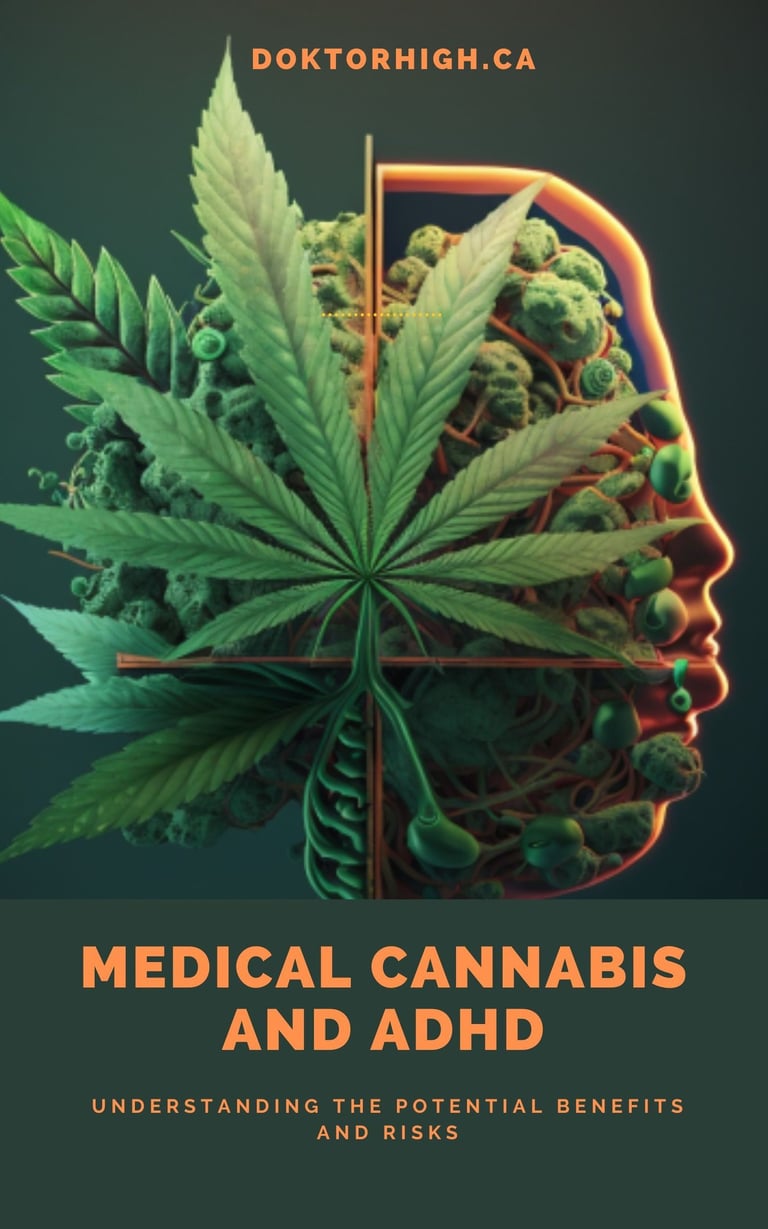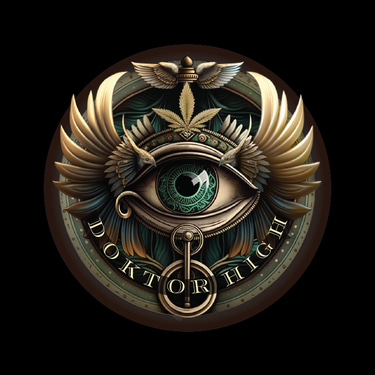

Medical Cannabis and ADHD
Attention-deficit/hyperactivity disorder (ADHD)
Is a neuro-developmental disorder characterized by symptoms of inattention, hyperactivity, and impulsivity.
Understanding ADHD
ADHD is a complex disorder that affects the brain's executive functions, including attention, impulse control, and working memory. It is believed to involve a combination of genetic, environmental, and neurological factors. Individuals with ADHD often struggle with maintaining focus, controlling impulses, and regulating behavior.
Current Treatment Options for ADHD
The standard treatment options for ADHD typically include stimulant medications such as methylphenidate and amphetamines. Non-stimulant medications, behavioral therapy, and psychoeducation are also commonly used. These treatments can be effective in managing symptoms, but they may not work for everyone and can have side effects or limitations.
The Potential Role of Medical Cannabis Therapy
Medical cannabis therapy, derived from the Cannabis sativa plant, contains various active compounds called cannabinoids. The two most well-known cannabinoids are delta-9-tetrahydrocannabinol (THC) and cannabidiol (CBD). These cannabinoids interact with the body's endocannabinoid system, which plays a role in regulating neurotransmitter release, neuronal activity, and cognitive processes. Medical cannabis therapy has been proposed as a potential treatment option for ADHD due to its potential effects on attention, impulsivity, and hyperactivity.
Attention and Focus
One of the potential benefits of medical cannabis therapy for individuals with ADHD is its potential to improve attention and focus. THC, the psychoactive compound in cannabis, has shown promise in enhancing cognitive processes related to attention. CBD, on the other hand, has been studied for its potential to reduce anxiety and promote a calmer state of mind, which may indirectly improve attention and focus in individuals with ADHD.
Impulsivity and Hyperactivity
Impulsivity and hyperactivity are common symptoms of ADHD that can significantly impact daily functioning. Medical cannabis therapy has been suggested as a potential treatment for impulsivity and hyperactivity due to its calming and relaxation effects. THC and CBD may help reduce impulsive behavior and hyperactivity by modulating neurotransmitter systems involved in self-control and motor activity.
Anxiety and Comorbidity
Anxiety disorders often coexist with ADHD, further complicating symptom management. Medical cannabis therapy, particularly CBD, has been studied for its anxiolytic properties and potential to reduce anxiety symptoms. By addressing anxiety, medical cannabis therapy may indirectly alleviate some of the ADHD symptoms associated with comorbid anxiety disorders.
Sleep and Restlessness
Sleep disturbances and restlessness are common in individuals with ADHD. Medical cannabis therapy has shown potential in promoting better sleep and reducing restlessness. Certain cannabinoids, such as THC, have sedative properties that may aid in sleep initiation and maintenance, potentially improving overall functioning in individuals with ADHD.
Safety and Considerations
When considering medical cannabis therapy for ADHD, it is crucial to consider potential side effects, individual responses, legal and regulatory considerations, and age appropriateness. Common side effects of medical cannabis therapy include dry mouth, dizziness, changes in appetite, and temporary cognitive impairment. It is essential to start with low doses, monitor for side effects, and consult with a healthcare professional experienced in medical cannabis therapy.
While the potential benefits of medical cannabis therapy for ADHD are intriguing, further research is needed to establish its efficacy, safety, optimal dosing, and long-term outcomes. ADHD is a complex disorder with individual variations, and treatment approaches should be tailored to each patient's specific needs and preferences.
As research in this field continues to evolve, a better understanding of the therapeutic potential and mechanisms of action of medical cannabis in ADHD can be gained. This knowledge can lead to improved treatment approaches and better quality of life for individuals living with ADHD.
References:
Cooper RE, Williams E, Seegobin S, et al. Cannabinoids in attention-deficit/hyperactivity disorder: A randomised-controlled trial. Eur Neuropsychopharmacol. 2017;27(8):795-808.
Cooper RE, Tye C, Kuntsi J, et al. The effects of cannabinoid compounds on attentional processes underlying symptomatology in ADHD. J Atten Disord. 2017;21(10):809-823.
Loflin MJE, Babson KA, Bonn-Miller MO. Cannabinoids as therapeutic for PTSD. Curr Opin Psychol. 2017;14:78-83.
Micale V, Di Marzo V, Sulcova A, Wotjak CT, Drago F. Endocannabinoid system and psychiatry: In search of a neurobiological basis for detrimental and potential therapeutic effects. Front Behav Neurosci. 2013;7:1-21.
ElSohly MA, Radwan MM, Gul W, Chandra S, Galal A. Phytochemistry of Cannabis sativa L. Prog Chem Org Nat Prod. 2017;103:1-36.
Bonaccorso S, Ricciardi A, Zangani C, Chiappini S, Schifano F. Cannabidiol (CBD) use in psychiatric disorders: A systematic review. Neurotoxicology. 2021;84:222-230.
